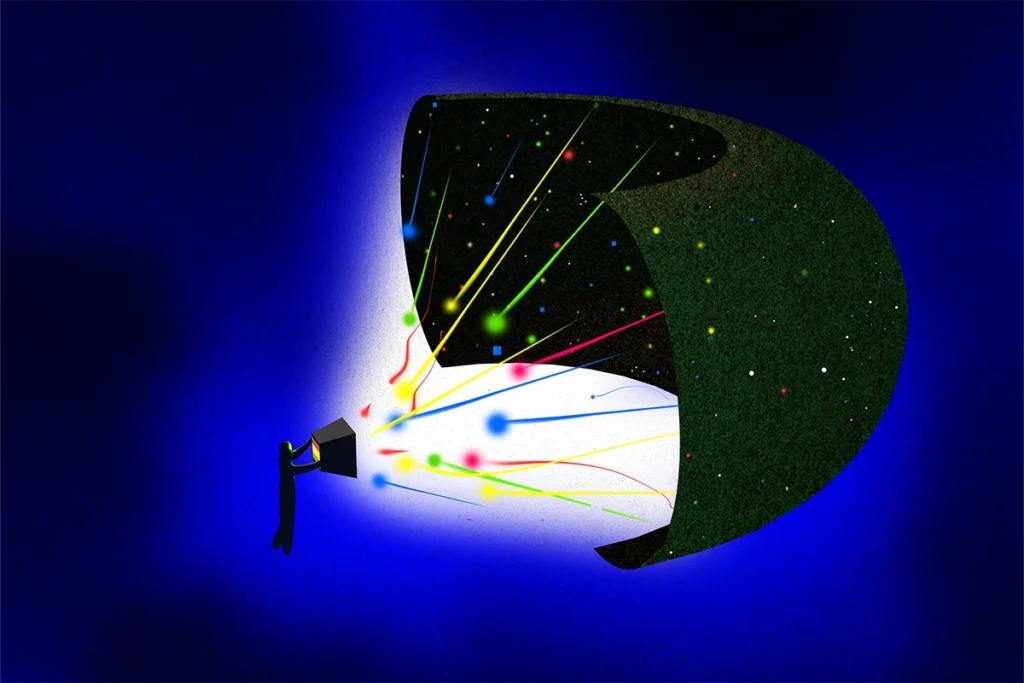Mayada Elsabbagh is professor of neurology and neurosurgery at the Montreal Neurological Institute at McGill University in Canada. Her research focuses on understanding the root causes of autism and tracing its developmental pathways. The approach combines innovative research with the mission of accelerating the translation of scientific discoveries into community impact. Elsabbagh’s contributions include the discovery of early brain-function markers for autism prior to the onset of behavioral signs. She has supported the successful launch of several collaborative research and translational networks aimed at accelerating the pace of discovery in autism. This includes the Transforming Autism Care Consortium, a Québec research network supported by the Fonds de recherche du Québec-Santé and several community partners. She is also active in global efforts to improve evidence-based practice in the community and capacity-building in low- and middle-income countries. The public value and social relevance of Elsabbagh’s research has been recognized through various awards, including the Neville Butler Memorial Prize and the British Psychological Society Neil O’Conner Prize.
Mayada Elsabbagh
Professor
McGill University
From this contributor
Autism therapies blur boundary between clinic, everyday life
Modern treatments for autism are often led by parents and integrated into a child’s daily life.

Autism therapies blur boundary between clinic, everyday life
To screen or not to screen: That is not the question
Instead of debating about whether to screen all children for autism, we should be looking for better ways to identify children at risk and help them access services.

To screen or not to screen: That is not the question
Why inferring autism’s causes from epidemiology is dangerous
Epidemiological 'just-so' stories, which infer causes of autism from general trends in prevalence, are in danger of repeating the mistakes of social Darwinism, says Mayada Elsabbagh.

Why inferring autism’s causes from epidemiology is dangerous
A global vision for autism with community solutions
A global approach to understanding autism that respects the uniqueness of different communities is not a choice, but a necessity, says Mayada Elsabbagh.

A global vision for autism with community solutions
Explore more from The Transmitter
Grace Hwang and Joe Monaco discuss the future of NeuroAI
Hwang and Monaco organized a recent workshop to hear from leaders in the field about how best to integrate NeuroAI research into the BRAIN Initiative.
Grace Hwang and Joe Monaco discuss the future of NeuroAI
Hwang and Monaco organized a recent workshop to hear from leaders in the field about how best to integrate NeuroAI research into the BRAIN Initiative.
Imagining the ultimate systems neuroscience paper
A growing body of papers on systems neuroscience and on giant simulations of neural circuits involves data beyond the point that anyone can reasonably understand end to end. Looking ahead, “paper-bots” could solve that problem.

Imagining the ultimate systems neuroscience paper
A growing body of papers on systems neuroscience and on giant simulations of neural circuits involves data beyond the point that anyone can reasonably understand end to end. Looking ahead, “paper-bots” could solve that problem.
Hessameddin Akhlaghpour outlines how RNA may implement universal computation
Could the brain’s computational abilities extend beyond neural networks to molecular mechanisms? Akhlaghpour describes how natural universal computation may have evolved via RNA mechanisms.
Hessameddin Akhlaghpour outlines how RNA may implement universal computation
Could the brain’s computational abilities extend beyond neural networks to molecular mechanisms? Akhlaghpour describes how natural universal computation may have evolved via RNA mechanisms.